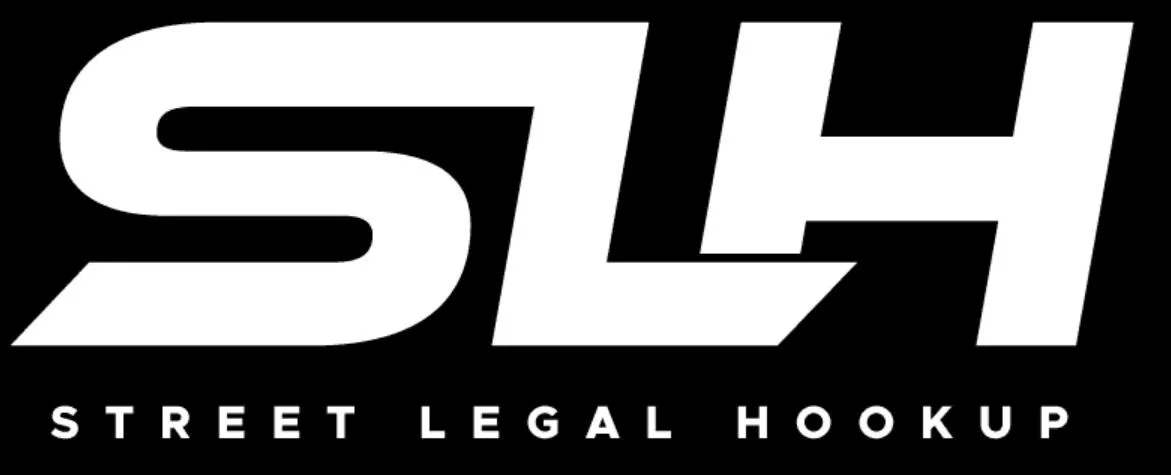West Virginia’s landscapes, with their dense forests, rolling hills, and rugged trails, draw side-by-side enthusiasts from across the country. Places like the Hatfield-McCoy Trails and the Monongahela National Forest offer thrilling off-road experiences for riders on vehicles like the Polaris RZR or Can-Am Maverick.
Many UTV owners, however, want to use public roads to connect trails, visit nearby towns, or drive scenic routes like the Highland Scenic Highway. Achieving street legality involves understanding state regulations, meeting equipment standards, and navigating registration processes.
This street legal UTV guide in West Virginia provides a clear roadmap to help you comply with laws, address costs, and ride legally on public roads.
Overview of UTV Regulations in West Virginia
West Virginia’s rules for utility-terrain vehicles (UTVs) and all-terrain vehicles (ATVs) aim to ensure safety while supporting the state’s vibrant off-road culture. These regulations, found in ATV laws in West Virginia under WV Code § 17A-13-1 and WV Code Chapter 17F, define how side-by-sides can operate on public roads and trails. Familiarizing yourself with these laws is essential for legal riding.
The state allows UTVs to register as Special Purpose Vehicles (SPVs), granting limited road access. SPV rules include:
- Road access is restricted to 20 miles on roads with centerlines or more than two lanes, at speeds below 40 miles per hour. Interstates and controlled-access highways are prohibited, except for emergency responders.
- Crossing highways requires stopping fully, crossing at a 90-degree angle in a clear-visibility area, and yielding to traffic. Headlights and taillights must be on after dark.
- Local governments, trail systems, and the West Virginia Division of Natural Resources may set additional rules. For example, the Hatfield-McCoy Trails, covering counties like Logan and Mingo, mandate trail permits and adherence to specific routes.
- Riders under 18 must wear helmets meeting ANSI z90.1, US Department of Transportation (DOT) 218, or Snell standards. Rental companies must supply helmets for minors and offer them to adults.
- Single-seat UTVs cannot carry passengers. For multi-passenger UTVs, drivers under 18 need a level two intermediate driver’s license to transport passengers under 18.
- Non-SPV UTVs can use one-lane roads or roads without centerlines for purposes like connecting trails, with no specific distance limits unless local ordinances apply. For instance, near the Bearwallow Trail System, riders must follow both state and Hatfield-McCoy rules.
West Virginia’s high ATV injury rates have shaped these laws, emphasizing safety through equipment, speed, and rider conduct. The SPV program’s limitations, such as its 20-mile cap and lack of out-of-state recognition, often lead owners to explore other registration options.
Road Access for UTVs in West Virginia
You can drive a UTV on the road in West Virginia as a Special Purpose Vehicle (SPV) under WV Code § 17A-13-1, allowing up to 20 miles on centerline roads at speeds under 40 mph, but not on interstates. Non-SPV UTVs can use one-lane roads or cross highways at a 90-degree angle with lights. Out-of-state registration provides greater road access flexibility.
UTV road access in West Virginia depends on registration status and road type. SPVs can travel up to 20 miles on roads with centerlines or more than two lanes, at speeds below 40 mph, making them suitable for linking trailheads like those in the Hatfield-McCoy system or reaching nearby areas. After sunset, headlights and taillights are mandatory. Non-SPV UTVs can operate on one-lane roads, common in rural settings, without distance restrictions unless local rules apply, such as near the Pinnacle Creek trail.
Crossing highways or multi-lane roads with non-SPV UTVs requires stopping completely, crossing at a 90-degree angle in a visible area, and yielding to traffic. Lighting is required after dark. Local regulations vary, with trail systems like Rockhouse enforcing speed limits and permits. The SPV program’s key limitation is its restriction to West Virginia roads, with no reciprocity in other states. This constraint pushes many owners toward out-of-state registration for broader access on public roads.
Equipment Standards for Street-Legal UTVs
Meeting WV state inspection guidelines requires UTVs to have specific equipment for safety and road-worthiness. These standards, enforced during DMV inspections, ensure side-by-sides are visible and controllable on public roads. Required equipment includes:
- At least one headlight and one taillight, a brake light, and a white license plate light. Amber front turn signals and amber or red rear turn signals are needed for signaling.
- Mirrors on both the left and right sides of the driver to monitor traffic.
- A functional horn or audible warning device to alert other road users.
- Reliable brakes capable of stopping the UTV safely in all conditions.
- Tires with at least 2/32 inch tread depth for adequate traction.
- A working muffler to reduce noise per state standards.
- An illuminated speedometer to track speed, adhering to the 40 mph limit.
- A parking brake to secure the vehicle when stopped.
- A windshield is optional, but without one, drivers must wear eye protection, such as goggles.
Before inspection, confirm all equipment is functional. A UTV owner in Boone County, for example, replaced faulty turn signals to pass the DMV check. Non-compliant equipment can lead to inspection failures, delaying registration and road access for your street legal four-wheeler.
West Virginia DMV Registration Process
Registering a UTV as an SPV in West Virginia involves multiple steps, managed by the West Virginia Division of Motor Vehicles (DMV). This process, governed by West Virginia car inspection laws, verifies compliance with safety and legal standards. Steps include:
- Collect proof of ownership, such as a title or bill of sale, the vehicle identification number (VIN), and proof of state-minimum liability insurance. A valid driver’s license is required for road use.
- Ensure the UTV has all required equipment, as outlined above, to pass inspection.
- Schedule an inspection at a DMV-approved site. The UTV must be trailered to the site, as unregistered vehicles cannot be driven on public roads. Inspectors check lighting, brakes, tires, steering, and structural components.
- Submit the inspection report, documents, and fees to the DMV. Fees, typically $50 to $100, vary by location, with additional inspection costs.
- Receive a motorcycle-size license plate upon approval, designating the UTV as an SPV for limited road use.
The process can take weeks, especially if equipment issues require re-inspection. A rider in Kanawha County faced delays after missing a license plate light, needing a second visit. SPV registration limits use to 20 miles on West Virginia roads, with no recognition in other states. High-tax states may question SPV plates, potentially imposing use taxes. These challenges make alternative registration options attractive for many owners.
Out-of-State Registration Options for UTV Owners
West Virginia’s SPV program offers limited road access, but its restrictions prompt many UTV owners to consider out-of-state registration, particularly through a Montana Limited Liability Company (LLC). This method, used by thousands nationwide, addresses DMV complexities and costs. Services like Street Legal Hookup facilitate this process, offering significant benefits.
Key advantages of Montana LLC registration include:
- Montana offers a simple, flat-fee registration system, making high-value vehicle registration easier and more predictable.
- No safety inspections or emissions tests are required, bypassing West Virginia’s inspection hurdles.
- UTVs 11 years or older qualify for permanent plates, eliminating annual renewal fees.
- Montana plates are valid in all 50 states, providing full street legality without SPV’s 20-mile limit. No Montana residency is needed.
The process involves forming an LLC, registering the UTV under it, and handling paperwork. Owners submit vehicle details and documents online, with plates shipped quickly.
For example, a Huntington UTV owner registered a 2009 Yamaha Rhino through a Montana LLC, involving $7,500 and receiving permanent plates in five days. Compared to a three-week SPV process, the speed and benefits were significant. Considerations include potential use taxes in states like California, where storage may trigger fees, so consulting a tax professional is advisable. Insurance must list the LLC as an additional interest, not a commercial policy.
Explore out-of-state registration options at Street Legal Hookup’s UTV registration page to determine if this method fits your needs.
Street Legal Hookup’s Registration Services
Street Legal Hookup, a virtual service operating in all 50 states, streamlines UTV registration, particularly through Montana LLCs. Their approach focuses on ease, clarity, and addressing DMV challenges. Features include:
- A secure online platform for submitting vehicle details, titles, and signed documents, with a dashboard to track progress.
- A flat $995 fee covering LLC formation, registration, and plate delivery, with no additional costs.
- Permanent plates shipped in as little as three business days, with 40-day temporary tags available in one day.
- Specialized handling of complex cases, such as modified UTVs or vehicles with missing titles.
- Dedicated account managers to answer questions about insurance, taxes, or local regulations.
A Raleigh County owner with a custom side-by-side struggled with DMV rejections due to incomplete paperwork. Street Legal Hookup recovered the title and registered the UTV through a Montana LLC, delivering plates in four days. This service suits owners navigating complex regulations or seeking nationwide road access.
Scenic Drives for Street-Legal UTVs
A street-legal UTV expands your options in West Virginia, allowing you to combine off-road trails with public road adventures. The Highland Scenic Highway, a 43-mile National Scenic Byway through the Monongahela National Forest, is a prime destination. Running from Richwood to Marlinton along WV Route 150 and WV Route 39/55, it reaches 4,500 feet, offering views of fall foliage, Cranberry Glades, and Falls of Hills Creek.
This highway, accessible to SPVs or out-of-state registered UTVs, has no centerline restrictions, making it ideal for side-by-sides. Riders can stop at overlooks like Little Laurel or detour to nearby trails. Other scenic routes, such as those near the New River Gorge or Seneca Rocks, are also open, but local ordinances may apply. For example, a group with Montana-registered UTVs drove from the Rockhouse Trail System to the Highland Scenic Highway, blending trails and scenic drives in one trip.
Common Questions About Street-Legal UTVs
Can you ride a side-by-side on the road in West Virginia?
Yes, on one- or two-lane roads without a center line for up to 10 miles at 25 mph, or on shoulders to connect trails/residences. Not allowed on interstates or roads with center lines except for crossing. Check local rules.
Can you make a side-by-side street legal in West Virginia?
Yes, register as a special purpose vehicle with headlights, taillights, turn signals, horn, mirrors, windshield (or eye protection), and insurance. Pass DMV inspection, get a license plate. Costs ~$1,000–$1,500. No interstates or roads over 55 mph.
What is the scenic highway in West Virginia?
The Highland Scenic Highway, a 43-mile National Forest Scenic Byway (State Route 150 & 39/55) in Monongahela National Forest, with mountain views, four overlooks, and hiking. Other scenic routes: Coal Heritage Trail, Midland Trail.
Final Thoughts
West Virginia’s trails and scenic roads, from the Hatfield-McCoy system to the Highland Scenic Highway, offer side-by-side enthusiasts countless adventures. Achieving street legality lets you connect trails, explore new routes, and ride with confidence. While West Virginia’s SPV program provides limited road access, its 20-mile cap and inspections can be restrictive. Out-of-state registration through a Montana LLC offers process benefits, no inspections, and nationwide legality, addressing many DMV challenges. Street Legal Hookup’s online platform simplifies this process, delivering plates quickly and handling complex cases. Visit Street Legal Hookup to start your UTV registration and enjoy West Virginia’s roads legally.


